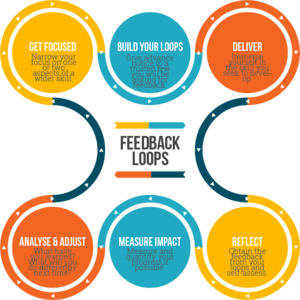Have you ever marveled at the mastery of virtuoso musicians, Olympic athletes, or top-tier professionals in their respective fields? It’s easy to believe that their prowess is an innate gift bestowed upon them from birth. However, the truth is that mastery in any skill or field is accessible to all of us through the power of deliberate practice - a purposeful, systematic approach to skill development that can transform anyone into a true expert.
What is Deliberate Practice?
Deliberate practice is a concept popularized by psychologist Anders Ericsson, which refers to a specific and systematic approach to improving one’s skills or expertise in a particular domain. It is a learning process that anyone can use, including professionals and experts wanting to attain higher levels of performance and subject matter expertise. In the context of professionals developing their subject matter expertise, deliberate practice involves the following key elements:
Focused and Purposeful
Deliberate practice is not about mindless repetition or simply “learning on the job”. It requires a clear and specific goal or target outcome. Identify areas you want to improve, set specific objectives, and work deliberately towards achieving them. The more specific the developmental task, the better. For example, deciding to improve your presentation skills is too general. Instead, for a specific period, decide to focus entirely on something like improving your use of body language.
Challenging
Deliberate practice involves pushing oneself beyond the comfort zone. Master experts engage in tasks slightly beyond their current abilities, creating a challenge that encourages growth. This often involves tackling complex or unfamiliar problems.
Goal-Oriented
Setting specific, measurable, and achievable goals is a fundamental part of deliberate practice. Constantly set and revise these goals as you make progress. As per the point above, these goals need to be challenging and should require stretching beyond your comfort zone.
Feedback-Driven
Having the courage to get into a routine of seeking regular feedback is an essential component of deliberate practice. Actively seek feedback, whether from mentors, peers, or self-assessment, to regularly identify your strengths and weaknesses. Use this feedback to make targeted improvements in your chosen goals.
Repeated Practice
Deliberate practice entails iterative efforts to refine and master specific skills or knowledge. Get into a regular routine of engaging in these activities that will stretch you consistently over time, making incremental improvements with each iteration.
Reflective
No real learning or change can happen without self-reflection. Master experts who engage in deliberate practice reflect on their performance and experiences. They analyse what worked and what didn’t, adjusting their approach accordingly.
Expert Guidance
Having access to expert guidance or mentorship is beneficial in deliberate practice. Mentors, coaches, and networking can provide valuable insights and direction for improvement. Find at least one person who knows more than you to guide you or someone who can challenge you.
Adapting Learning Techniques
It is not only important to focus on what you are learning, but how you are learning it. Reflect regularly about your learning approach and methods and make small changes to maximise the learning you obtain from your efforts. Adapt your practice routines based on changing needs and goals.
The Delights and Challenges of Deliberate Practice
We can fool ourselves that we are learning on the job. Most times we don’t. At best, learning on the job without being conscious of what and how we are learning on the job will lead to a slow and ineffective learning journey.
Deliberate practice is a conscious and purposeful approach that expedites our learning. While deliberate practice is a proven path to mastery, it has challenges. It demands time, effort, and perseverance. Plateaus are common, where progress may seem slow or non-existent, but these are moments of growth in disguise.
Deliberate practice can also be emotionally and mentally taxing. It requires intense focus, and it’s easy to become frustrated when confronting your developmental goals. However, it’s precisely this process of confronting and overcoming challenges that leads to true expertise.
Conclusion
Your Journey to Mastery Begins Now Deliberate practice is the ultimate equalizer. It’s the bridge between where you are now and where you want to be as an expert in your chosen skill. Whether you aspire to become a chess grandmaster, a coding guru, a head of engineering, or a master chef, the principles of deliberate practice remain the same.
So, if you’ve ever dreamt of achieving mastery in any field, remember this: with deliberate practice, significant improvements in knowledge and skill in any field are within your control. Embrace the process, set your goals, practice with intention, seek feedback, and never stop pushing your limits. Your journey to mastery can begin today.




